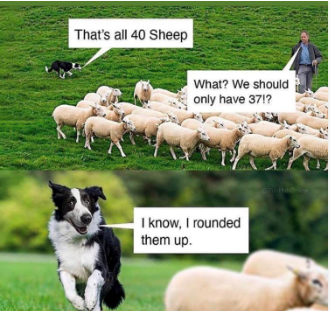2024 Newsletter 3 - 5 September 2024
Welcome to the third of our monthly newsletters from the team at Maths Week England. With the Paralympics now in full swing we have produced another olympic themed quiz for you to try out on your pupils as you begin the new term. There are some fascinating facts and figures to be learnt from the Paralympics as well as watching some truly inspiring athletes.
BREAKING NEWS, this year’s maths week theme is … ‘Can we solve it?’
There will be more details on this in our next newsletter.
NEW for 2024 – School Accreditation. Does your school enthusiastically embrace MWE? Are you pupils buzzing with excitement for MWE? Tell us what you have planned and what you achieved to win the coveted MWE ’24 Accreditation. More details on how to apply will be available nearer the time.
Don’t forget, that #MWE2024 will be offering FREE resources for children of all ages, including daily video puzzles, daily problem solving activities and so much more.
For more information and to be part of the world’s largest maths festival click here.
Puzzle Time
Paralympic Maths Quiz
- The Paris 2024 Paralympics will have 4,400 athletes competing in 22 sports. The first Paralympic games took place in Rome in 1960 featuring 400 athletes. What is the difference between the number of athletes in 1960 and 2024?
- The Paris 2024 Olympics had 329 gold medal events. At the Paralympics there are 549 events. Calculate the sum of gold medal events over the Olympics and the Paralympics.
- At the Tokyo Paralympics (2020), the GB team finished second behind China with 124 medals including 41 golds and 45 bronze. How many silver medals did they win?
- The hoop used in wheelchair basketball is 3.05 metres from the ground, just like at the Olympic Games. There’s no difference! What is this height in feet and inches?
- The world record for the wheelchair marathon stands at 01:17:47 (held by Switzerland’s Marcel Hug in the T53-54 category). Convert his total time into seconds.
- Set by Markus Rehm (T64) at the European Para Championships in 2021, the long jump world record stands at 8.62 metres. The men’s long jump record, set by Mike Powell in 1991 is 8.95 metres. Calculate the difference between the two world records.
- The wheelchairs used in wheelchair racing allow the athletes to race at speeds of up to 36 kmh. Convert this speed to mph.
- Each para triathlon race comprises 750m of open water swimming, 20 km of cycling and 5 km of running. Calculate this total distance in miles.
- Athletes often record faster times at the Paralympic Games than at the Olympics. In Rio, Algeria’s Abdellatif Baka won the 1500m gold in 03:48:29, while Matthew Centrowitz of the USA had become the Olympic champion two weeks earlier in a time of 03:50:00. Calculate the difference in these two times.
- 215 GB athletes will compete at the Paralympics in Paris 2024. 327 GB athletes completed at the Olympics. How many GB athletes were there in total at the Paralympics and the Olympics?
How did you get on?
Answers will appear in the next newsletter and on the Maths Week England website.
Time for a mathsy joke!
If you have any better ones to share please email them to us for inclusion in future newsletters. Don’t forget to include the name of your school.

